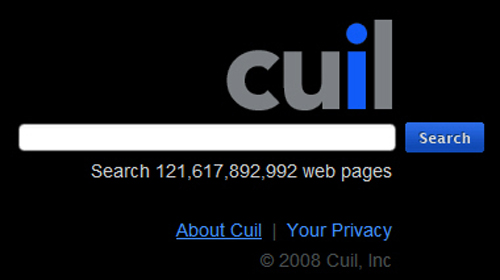New Google Android Phone by T-Mobile

T-Mobile unveiled the first Google Android platform-based phone, the first carrier to offer a device run on Google’s Android open source

T-Mobile unveiled the first Google Android platform-based phone, the first carrier to offer a device run on Google’s Android open source

News out today that Google Inc. is releasing its very own Web browser, called Chrome. This is a long-anticipated move targeted directly at Microsoft Corp’s dominant browser, Internet Explorer. IE is used by about 75% of all Internet users.
This move by Google allows Chrome to facilitate Internet users easy access to its own market-leading search engine. Google’s lead in the lucrative Internet search market is also dominating. Their search engine processes nearly two-thirds of the Web’s queries.
Google is offering Chrome for free and will be available for downloading in more than 100 countries, but for computers running only Microsoft’s Windows operating system. Google says it is still developing versions compatible with Apple Inc.’s Mac computer and the Linux operating system.
This battle between two of hi-tech’s heavyweights – Google and Microsoft – has been going on for a while and will continue on for some time.
For the past several years, Google has been attempting to find ways of taking advantage of its search engine’s popularity, trying to break Microsoft’s hold on how most people interact with personal computers.
To date, Google has concentrated on focusing on a bundle of computer programs, including word processing and spreadsheet applications, that Google offers as an alternate to one of Microsoft’s biggest money makers, the MS Office suite of products.

Anna Patterson used to work for Google, after quiting in 2006. But her efforts earlier in her career led to Google buying her Internet search engine technology in 2004, to upgrade it’s own system.
Now Patterson thinks she may have struck gold again, but this time she’s not selling the search engine technology. Her goal was to develop a more comprehensive and efficient way to scour the Internet.
The new search engine is called “Cuil”, pronounced like “cool” and was funded by $33 million in venture capital. Working with her husband Tom Costello and two former Google engineers, Russell Power and Louis Monier, they set out to develop better ways to search.
It’s been reported that Cuil’s search engine index covers 120 billion Web pages, and Patterson believes that’s three times what Google indexes.
Instead of trying to mimic Google’s methods of ranking the quantity and quality of links to Web sites, Patterson says that with Cuil, the technology will drill down into actual page content. In addition, Cuil’s search results will be displayed in a more magazine like format versus the vertical stack of Web links like Google offers.
The other big difference between Cuil and Google, is that Cuil promises not to retain information about uses’ search histories or surfing patterns. This has been a sore soft in the industry, especially with privacy watchdogs.
Only time will tell if Cuil can really challenge Google for the crown of top search engine. Even heavyweights like Yahoo and Microsoft have been losing ground to the Internet giant.
Try the new site at http://www.cuil.com/ (Update: Cuil went out of business in 2010)

Facebook is the second largest social network on the web, second behind only MySpace in terms of site traffic. It began primarily focused on high school and college students, Facebook has been fast gaining market share, and more significantly a strong, supportive user base. Since their launch in February 2004, they’ve been able to obtain millions of users in the U.S. alone and expand worldwide to 7 other English-speaking countries, with more to follow. Can this growing phenomenon become he next Google? The odds are no, but founder Mark Zuckerberg has big plans.
Originally called thefacebook, Facebook was founded by former-Harvard student Mark Zuckerberg (while at Harvard) who ran it as one of his hobby projects with some financial help from Eduardo Saverin. Within months, Facebook and its core idea spread across the dorm rooms of Harvard where it was very well received. Soon enough, it was extended to Stanford and Yale where, like Harvard, it was widely endorsed.
Before he knew it, Mark Zuckerberg was joined by two other fellow Harvard-students – Dustin Moskovitz and Chris Hughes – to help him grow the site to the next level. Only months later when it was officially a national student network phenomenon, Zuckerberg and Moskovitz dropped out of Harvard to pursue their dreams and run Facebook full time. In August 2005, thefacebook was officially called Facebook and the domain facebook.com was purchased for a reported $200,000.
Unlike its competitors MySpace, Friendster, Xanga, hi5, Bebo, and others, Facebook isn’t available to everyone — which explains its relatively low user count. Currently, users must be members of one of the 30,000+ recognized schools, colleges, universities, organizations, and companies within the U.S, Canada, and other English-speaking nations. This generally involves having a valid e-mail ID with the associated institution.
He didn’t have much choice but to sell. It was summer 2006, a little more than two years after Mark Zuckerberg had created Facebook in his Harvard dorm room as a way for him and his friends to better connect with schoolmates. In the intervening years, he’d raised $37.7 million from venture capitalists and transformed his modest Web site into a certified social phenomenon. College kids across the nation clamored for access, which Zuckerberg doled out, school by school. By mid-2006, about 7 million users, most of them college students, had a Facebook account.
But for all of Facebook’s success, there were also signs of trouble. Zuckerberg wanted the site to be more than a campus thing. He wanted to supplant and surpass MySpace and make Facebook the largest social network on the planet. He wanted it to become the next Google, a site that people of all ages would find useful in their daily lives. But that hadn’t happened. Facebook had cornered the market for college students, but its 11-month-old effort to capture the attention of high school students — and take users away from MySpace — was going nowhere. Indeed, Facebook’s growth was leveling off, inching its way toward 8 million members, while MySpace’s continued to surge, with 100 million members in August of 2006.
At the same time, suitors like Viacom and Microsoft had begun to take a serious look at Facebook, and they were tossing out numbers with lots of zeroes. Some investors and executives began wondering if it was time for Zuckerberg to sell. It was starting to look like Facebook had peaked.
Zuckerberg disagreed, but when Yahoo came calling with a bid of $1 billion in cash, the pressure became too much. He relented in July, verbally agreeing to sell Facebook to Yahoo. Strategically, it seemed like a good match. Yahoo had hundreds of millions of users, but its foray into social networking was struggling. Facebook had cool tools and was looking for a mass audience.
The timing, however, couldn’t have been worse. In the days after Zuckerberg agreed to sell, Yahoo announced it was projecting slower sales and earnings growth, and that the launch of its new advertising platform would be delayed. Its stock price plunged 22 percent overnight. Terry Semel, Yahoo’s CEO at the time, reacted by cutting his offer from $1 billion to $800 million. Zuckerberg, who had been warned about Semel’s reputation for last-minute renegotiations, walked away. Two months later, Semel reissued the original $1 billion bid, but by then Zuckerberg had convinced his board and executive team that Yahoo wasn’t a serious partner and that Facebook would be worth more on its own. He rejected the offer and became famous as the cocky youngster who turned down $1 billion.
Today, Zuckerberg, 23, is famous for other reasons. For one thing, analysts think he could be the nation’s richest man under 25, with a net worth estimated at $1.5 billion. But more important, he has transformed his company from second-tier social network to full-fledged platform that organizes the entire Internet. As a result, Facebook is the now most buzzed-about company in Silicon Valley, and Zuckerberg is constantly compared to visionaries like Steve Jobs and Bill Gates. Even some of the tech industry’s most legendary figures are genuflecting before Zuckerberg. In an entry on his blog, Netscape cofounder Marc Andreessen called Facebook’s transformation “an amazing achievement — one of the most significant milestones in the technology industry in this decade.” Says Marc Benioff, CEO of Salesforce.com, “I’m in awe.”
But Zuckerberg’s greatest contribution goes beyond Facebook’s success. His company suggests a new model for how connection, communication, and commerce can work online — a radical and ambitious rethinking of the Internet’s potential.